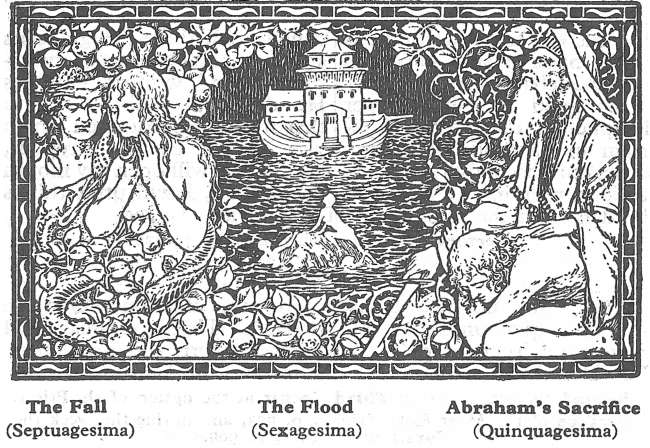Because Easter Sunday is early this year, Lent comes early (starting on February 14th with Ash Wednesday), and thus the Season of Septuagesima begins oddly before the Feast of the Purification. What is Septuagesima and why is it important?
Septuagesima and Lent are both times of penance, Septuagesima being a time of voluntary fasting in preparation for the obligatory Great Fast of Lent. The theme is the Babylonian exile, the “mortal coil” we must endure as we await the Heavenly Jerusalem. Sobriety and somberness reign liturgically; the Alleluia and Gloria are banished.
The Sundays of Septugesima are named for their distance away from Easter:
- The first Sunday of Septuagesima gives its name to the entire season as it is known as “Septuagesima.” “Septuagesima” means “seventy,” and Septuagesima Sunday comes roughly seventy days before Easter. This seventy represents the seventy years of the Babylonian Captivity. It is on this Sunday that the alleluia is “put away,” not to be said again until the Vigil of Easter.
- The second Sunday of Septuagesima is known as “Sexagesima, which means “sixty”. Sexagesima Sunday comes roughly sixty days before Easter.
- The third Sunday of Septuagesima is known as “Quinquagesima,” which means “fifty” and which comes roughly fifty days before Easter.
Quadragesima means “forty,” and this is the name of the first Sunday of Lent and the Latin name for the entire season of Lent.
Throughout this short Season of Septuagesima – and the next Season of Lent – you will notice a deepening sense of penance and somberness, culminating in Passiontide (the last two weeks of Lent), that will suddenly and joyously end at the Vigil of Easter on Holy Saturday when the alleluia returns and Christ’s Body is restored and glorified.
Slightly modified and taken from Fish Eaters.

Leave a Reply